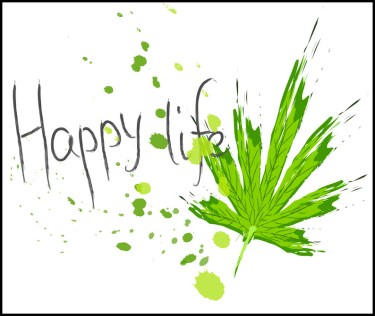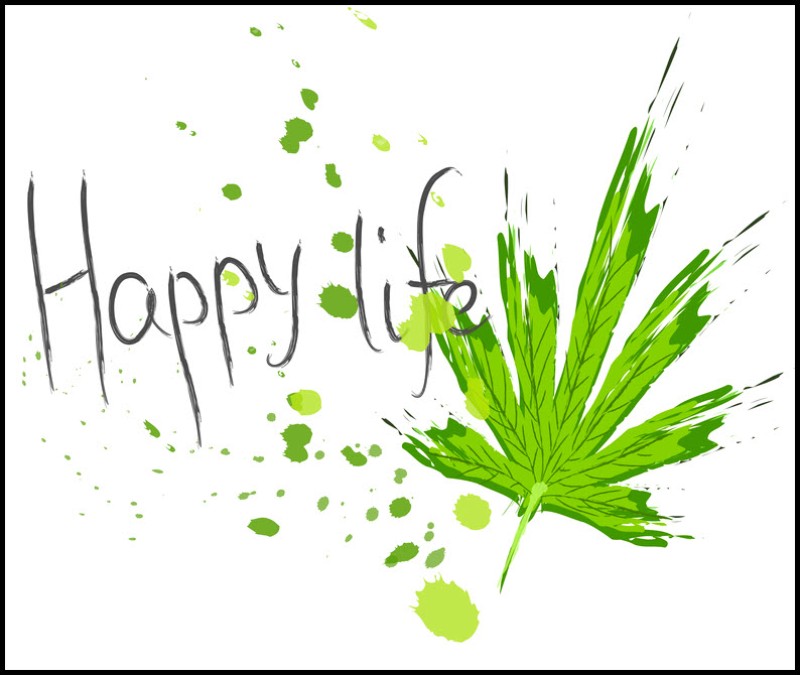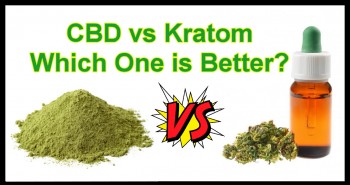
Are you a cannabis lifer?
Identity constructs and the substances we love…
When I first encountered cannabis as a young, wide-eyed enthusiast, I was instantly captivated by its allure. In a moment of youthful exuberance, I proclaimed, "I'm doing this shit for life!" Little did I know how prophetic those words would become, as I've now been consuming cannabis in various forms for over two decades.
However, as the years have passed, my relationship with this versatile plant has evolved significantly. The brash certainty of my youth has given way to a more nuanced perspective, prompting me to reexamine the concept of being a "cannabis lifer." These days, I find myself unable to declare with the same unwavering conviction that I'll be a lifelong consumer.
Perhaps my journey with cannabis will continue indefinitely, or maybe my method of consumption will shift. There's even a possibility that I might forgo the euphoric experiences altogether, opting instead for raw, non-psychoactive cannabis. This introspection has led me to a profound realization: we often construct our identities around the things we love, and nowhere is this more evident than with cannabis.
The notion of being a "cannabis lifer" raises intriguing questions about dependency, socially accepted habits, and whether such a label inherently implies being a "stoner." As we delve into this topic, we'll explore the complex interplay between identity, substance use, and the evolving nature of our relationships with the things we hold dear.
Identity Integration Explained
Before we can delve into the concept of a "cannabis lifer," it's crucial to understand why and how we create the identities that navigate this world. Our sense of self is a complex construct, often shaped by our experiences, beliefs, and the roles we play in society.
When asked, "Who are you?", many people respond with an activity, profession, or similar descriptor. "I'm a lawyer," "I'm a stoner," or "I'm an artist" are common replies. These responses reflect how we tend to define ourselves through our actions, occupations, or affiliations.
In esoteric circles, this aspect of our identity is known as the "ego." It's a construct of narratives created by the Self to navigate the world around us. The ego is neither inherently good nor bad; it's simply a mechanism we require to exist within time and space. Without it, we would have no defining characteristics to call our own. Our identities would be vast and ever-changing, like the ocean, never at rest.
With the ego, we collapse certain internal narratives and package them as "myself." This psychological software provides us with behavioral cues, limitations, and beliefs. However, various esoteric philosophies teach us that while useful, all of these are merely "constructs" - none of them truly represent the "Self."
So, what is the Self? Depending on who you ask, the Self could be explained as the "unconscious" - not to be confused with the "subconscious." While the ego is the "conscious operating system," the unconscious is infinite, ever-expanding, and all-encompassing. In the unconscious, there is no difference between one thing and another; it's the unifying field of all things.
The conscious mind, then, is a fragment of this infinite space that can work within the constructs of reality. It's the part of us that interacts with the world, makes decisions, and forms memories. This is why we use "markers" such as profession, hobby, activity, or substance use to describe the Self. These markers provide a tangible way to understand and communicate our place in the world.
The problem arises when we forget that these are constructs and integrate them as fundamental aspects of our identity. When we say, "I am a lawyer" or "I am a stoner," we're not just describing what we do; we're defining who we are. This integration can be limiting, as it may prevent us from exploring other aspects of our potential or adapting to new circumstances.
For instance, a lawyer who loses their license may experience a profound identity crisis if they've too closely integrated their profession into their sense of self. Similarly, a "stoner" who needs to quit cannabis for health reasons might struggle with who they are without the substance.
Understanding identity integration is crucial when examining the concept of a "cannabis lifer." It reminds us that while our relationship with cannabis (or any other substance or activity) may be a significant part of our lives, it doesn't define our entire being. We are more than our habits, our professions, or our preferred substances.
By recognizing the constructed nature of our identities, we can maintain a healthier relationship with the various aspects of our lives, including cannabis use. We can appreciate the role these elements play in shaping our experiences without allowing them to limit our potential for growth and change.
Cannabis the Identity Crafter
While food and drink certainly play a role in shaping our identities, cannabis stands out as one of the more powerful "identity crafters." Its influence on personal identity is profound and multifaceted, often becoming deeply ingrained in the lives of its consumers.
Many, if not most, people who consume cannabis develop a strong affinity for it. This love often manifests in cultural markers, humorously captured in memes about the "cannabis starter pack" - complete with Bob Marley posters, pipes, rolling papers, and stoner flicks. While these stereotypes are meant to be humorous, they contain a grain of truth about how cannabis culture can shape personal identity.
Cannabis's power as an identity crafter stems from its versatility. It's a plant that seemingly has the ability to address a myriad of issues. Bored? Smoke weed. In pain? Try cannabis. Anxious? There's a strain for that too. When a substance can placate so many areas of our lives, it quickly becomes an essential tool in our arsenal for navigating daily existence.
As cannabis becomes a regular part of life, many users begin to embrace the identity of a "stoner." They proudly declare, "Yeah, I'm a stoner. I like weed... I'll smoke it for life!" This integration of cannabis into one's identity can be powerful and comforting, providing a sense of belonging and purpose.
However, this cannabis-centric identity doesn't always consider life's myriad possibilities. What if a high-paying job opportunity arises in a country where cannabis is strictly illegal? Would a self-proclaimed "lifer" risk severe legal consequences for their habit? Would they turn down the opportunity altogether because of their cannabis use? These scenarios highlight the potential limitations of too closely identifying with cannabis consumption.
When we examine our substance use, decisions, and identity descriptors through the lens of all possibilities, we might realize that we're not necessarily "lifers." Cannabis may be a significant part of our lives, but it doesn't have to define us entirely. Conversely, some individuals may find that cannabis genuinely adds more to their lives than it takes away, affirming their "lifer" status.
Personal experiences often shape our relationship with cannabis over time. For instance, transitioning from wake-and-bake sessions to evening-only consumption demonstrates how our use patterns can evolve. These changes suggest that our future relationship with cannabis may be different from what we currently envision. Perhaps in 20 years, we'll only be making extracts, smoking once a week, once a month, or solely during psychedelic experiences.
The power of cannabis to engrain itself in our lives is undeniable. However, it's crucial to maintain a degree of separation between our core identity and our cannabis use. This separation allows us to continue searching for our true selves - the observer behind the various identities we construct.
Ultimately, while cannabis can be a valuable tool for self-exploration and personal growth, it shouldn't become the entirety of who we are. By recognizing cannabis as one aspect of our multifaceted lives rather than our defining characteristic, we open ourselves to a broader range of experiences and possibilities. This balanced approach allows us to enjoy the benefits of cannabis while maintaining the flexibility to adapt and grow throughout life's journey.
Is it good or bad to be a cannabis lifer?
The question of whether being a "cannabis lifer" is good or bad doesn't have a simple, universal answer. Some individuals will indeed consume cannabis throughout their entire lives, while others may only engage with it for a brief period. However, the real issue isn't about duration but about the impact and relationship one has with the plant.
My personal stance is that being a cannabis lifer is neither inherently good nor bad. If cannabis genuinely enhances your life, whether through smoking, eating, or any other form of consumption, then continuing its use can be a positive choice. The key is to ensure that anything you do, including cannabis use, always provides a greater return on investment than the effort invested. In other words, the benefits should outweigh any potential drawbacks.
However, it's crucial to maintain a separation between your identity and your cannabis use. You may smoke weed, but that doesn't necessarily make you a "stoner." You might consume cannabis, but that doesn't mean you have to smoke it. The fundamental point is that you are not defined by what you consume. If that were true, as the humorous saying goes, most men would be pussies!
Being a cannabis lifer isn't about proudly wearing the label or making it the center of your identity. It's about recognizing cannabis as a tool or aspect of your life that brings value. Whether you use it for medical purposes, relaxation, creativity, or spiritual exploration, it's important to maintain a balanced perspective.
Remember, your relationship with cannabis can evolve over time. What works for you now may change in the future, and that's okay. The key is to remain self-aware, regularly evaluating the role cannabis plays in your life and adjusting as necessary.
Ultimately, if being a cannabis lifer means mindfully incorporating the plant into your life in a way that enhances your overall well-being, then it can be a positive choice. But if it means clinging to an identity that limits your growth or experiences, it might be time to reassess.
In the end, you are more than your habits or consumption patterns. Whether you're a cannabis lifer or not, what matters most is that you're living authentically and making choices that contribute positively to your life's journey. Cannabis can be a part of that journey, but it shouldn't be the destination.
CANNABIS FOR LIFE? READ ON...






